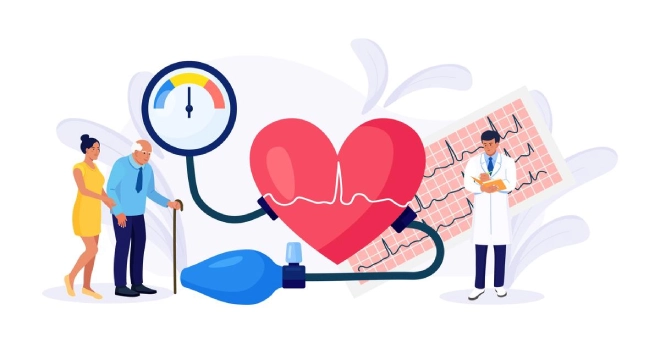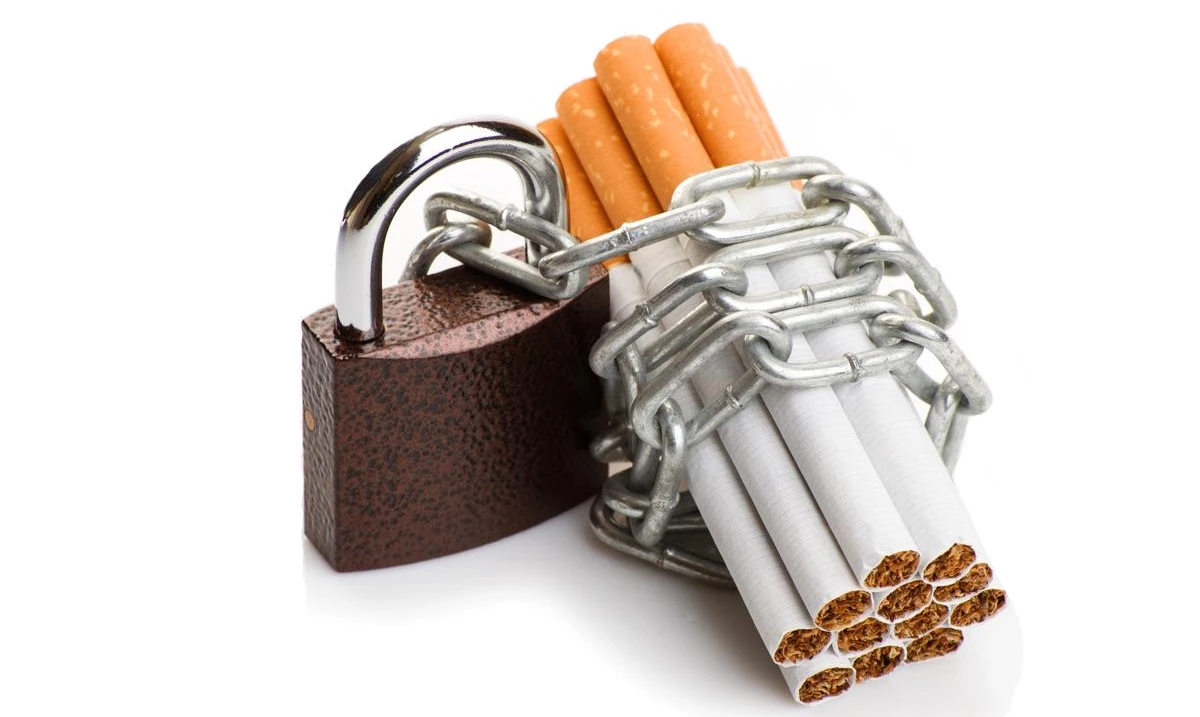Hypertension
Hypertension, Commonly Known as High Blood Pressure, is becoming increasingly common among the Indian population. As per a WHO report in 2019, approximately 30% of India's adult population suffers from hypertension. This puts them at a higher risk for various medical conditions like stroke, Heart Attack, and kidney failure.
Individuals need to be aware of their hypertension condition and take the necessary steps to manage it accordingly. Understanding hypertension, how it can be managed, and how it impacts other medical conditions is essential for patients to live healthier lives.

Hypertension occurs when the Blood pressure against your artery walls becomes too strong or too high over time also known as arterial stiffness. High blood pressure keeps the heart from working effectively, which can lead to a range of heart-related problems such as coronary artery disease (CAD), stroke, and congestive heart failure (CHF).
On top of that, long-term exposure to high arterial stiffness can also increase one's risk of developing chronic kidney disease (CKD) and other organ-related diseases such as vision loss or peripheral artery disease (PAD).
High blood pressure can lead to serious health problems & that's why it is so important for patients to understand what hypertension is, what causes it?, and how to manage it to Reduce their risk of developing serious Long-term Health complications.
Experience the transformative power of Hypertension treatment in pune, where Dr. Abhijeet Palshikar combines his unparalleled expertise, patients find solace, hope, and a renewed sense of possibility in their journey towards better health.
Symptoms
One of the most common yet potentially dangerous issues, hypertension or high blood pressure, is often symptomless but can lead to serious medical problems if left unchecked. While a single elevated reading may not always indicate a problem, Monitoring your Blood Pressure regularly to catch any hypertension before it takes its toll on your health is important.
The most common symptoms associated with hypertension are headaches, dizziness, and Chest Pain. These may be indicative of other illnesses in some cases; however, it is important that you always Consult With your Doctor if you experience any of these Symptoms to Rule out any underlying conditions due to high blood pressure.

Furthermore, other signs such as nausea, blurred vision, and difficulty breathing can also indicate the presence of hypertension in some individuals and should be discussed with healthcare professionals immediately.
High blood pressure can lead to several serious medical complications like stroke, heart Attack, or Renal failure when left untreated for long periods. Therefore, early detection and regular monitoring of one's BP levels are essential for effectively managing this condition and preventing potential harm from occurring over the long term.
As such, individuals should keep track of their BP levels at home through digital devices or by visiting their local doctor's office for a professional check-up every 2 - 3 months to ensure that their BP stays within healthy limits.
Don't wait for complications to arise. It's time to take control of your hypertension, Prioritize early detection and regular monitoring to effectively manage your condition and safeguard your well-being. Book a Consultation with the Best doctor for hypertension in Pune at Cardiomet Clinic.
Causes
Various factors, including genetics, age, obesity, and lifestyle can cause hypertension. Genetic factors play a role in the development of hypertension, as individuals with an existing family history of the condition tend to have higher chances of developing it themselves.
Similarly, increasing age is also known to Contribute to one's susceptibility towards High Blood Pressure due to the natural weakening of the body's cells over time. he body's cells over time. In addition, obesity is another Common Cause of Hypertension due to the increased strain on one's heart when excess fat accumulates around the abdomen.

Poor dietary habits, such as consuming too much salt and fat, can also lead to elevated BP levels over time. Smoking and excessive Alcohol consumption are two Additional that can increase Hypertension Risk.
Furthermore, leading an inactive lifestyle or not exercising regularly has also been linked with an increased chance of developing hypertension. Individuals must consciously incorporate regular physical activity into their daily lives to maintain healthy blood pressure levels and reduce any potential risks associated with this disorder.
Diagnosis
Hypertension is usually diagnosed through regular check-ups with a doctor or by using digital medical devices to measure one's Blood Pressure. For the most accurate readings, it is recommended that individuals visit their local healthcare professional for an in-person evaluation to detect any potential issue before it gets out of hand.

During these visits, your doctor can assess your BP levels and give you an accurate diagnosis. They might also ask questions about family history, lifestyle patterns, and other factors that can Influence your BP readings. In addition to that, they may also prescribe certain medications and suggest lifestyle changes, if necessary.
Regular check-ups with a Healthcare professional are essential for the early detection of hypertension and effective management of the condition over time. In addition, home monitoring through digital devices can help individuals track their BP levels daily, reducing the chances of any long-term health implications due to uncontrolled high blood pressure.
Treatment
Treatment for hypertension includes a combination of lifestyle changes and medication, depending on the individual's condition.

When managing high blood pressure, the primary focus is to make proactive lifestyle modifications that can help lower BP levels in the long run. Examples of such changes include:
- Exercising regularly.
- Quitting smoking
- Limiting alcohol intake.
- Maintaining a healthy weight.
- Consuming a healthy diet (low in salt and fat)
In addition to lifestyle modifications, medications like ACE inhibitors, beta-blockers, and diuretics are commonly prescribed by doctors to help further reduce one's BP levels.
For moderate to severe forms of hypertension that do not respond to simpler treatments, more potent drugs such as angiotensin-receptor blockers or calcium channel blockers might be recommended instead.
With the right combination of treatment options tailored specifically towards individual needs and goals, individuals with hypertension can effectively manage their condition over time.
Successful treatment outcomes have been seen in numerous cases where individuals have managed to considerably lower their blood pressure levels simply by incorporating regular exercise into their daily routine and making conscious dietary choices that complement their existing medication regime.
Risks & Complications of Untreated Hypertension
If untreated hypertension can lead to serious complications such as heart disease, stroke, and kidney failure.
Heart Diseases like Coronary Artery Disease or Congestive Heart Failure might arise due to the high pressure in the arteries, which eventually weaken them over time. This can also result in strokes if a clot forms inside a weakened artery and damages an area of the brain.
Furthermore, persistent hypertension can also affect the functioning of your kidneys by causing damage to the small blood vessels within them, resulting in reduced efficiency and sometimes even irreversible damage.
This underscores how essential it is for individuals with hypertension to manage their condition effectively to prevent any long-term health complications that might arise from leaving it unchecked for extended periods.
The Risks and Complications of Untreated Hypertension are not to be Underestimated. Prioritize your health by Consulting a Qualified Hypertension Specialist in Pune, who can provide necessary interventions to safeguard your well-being.
Prevention Tips
Hypertension can be prevented or actively managed through simple lifestyle modifications. Maintaining a healthy weight and eating a balanced diet are essential to preventing and managing hypertension, as Overweight is one of the main Risk Factors for Developing High Blood Pressure. But here is Question Which Type of Food Should be avoided in high BP?
Apart from that, exercising Regularly and limiting alcohol consumption are also immensely beneficial as they help to lower one's BP levels over time.
Furthermore, studies have also shown that Quitting smoking goes a long way in reducing one's risk of developing hypertension. A healthier overall lifestyle that includes all of these measures (in addition to regular medical check-ups) can help prevent hypertension and keep it under control if already present.
To Summarise,
High blood pressure (hypertension) can lead to serious medical complications, including heart disease, stroke, and kidney failure if left untreated. However, it is possible to lower the risk of developing hypertension or actively manage it by making simple lifestyle modifications such as maintaining a healthy weight, eating a balanced diet, exercising regularly, and not smoking.
Individuals at risk of developing hypertension or experiencing high blood pressure should seek medical advice from their nearest specialist or visit a heart clinic for an appropriate diagnosis and treatment plan. Early intervention is key to avoiding any long-term health issues associated with hypertension.


